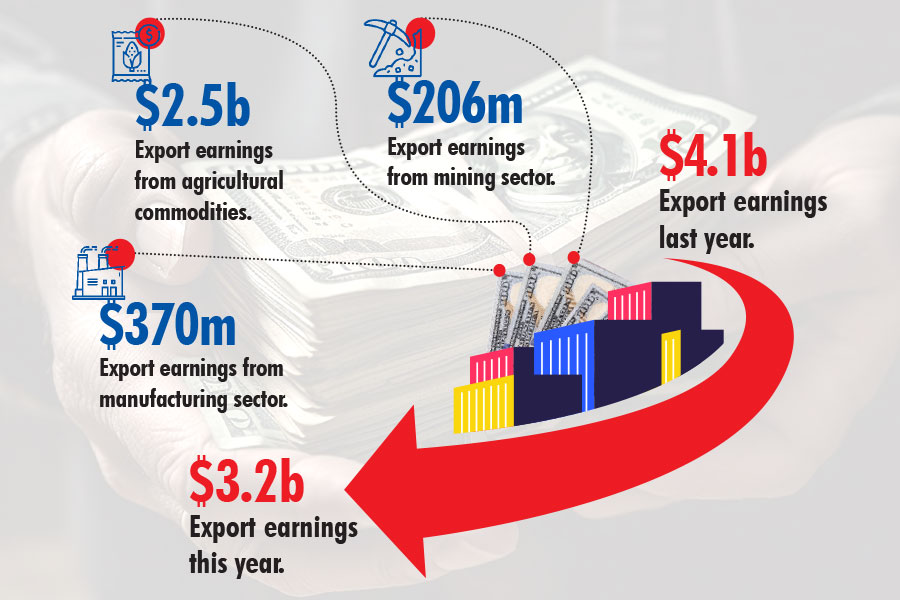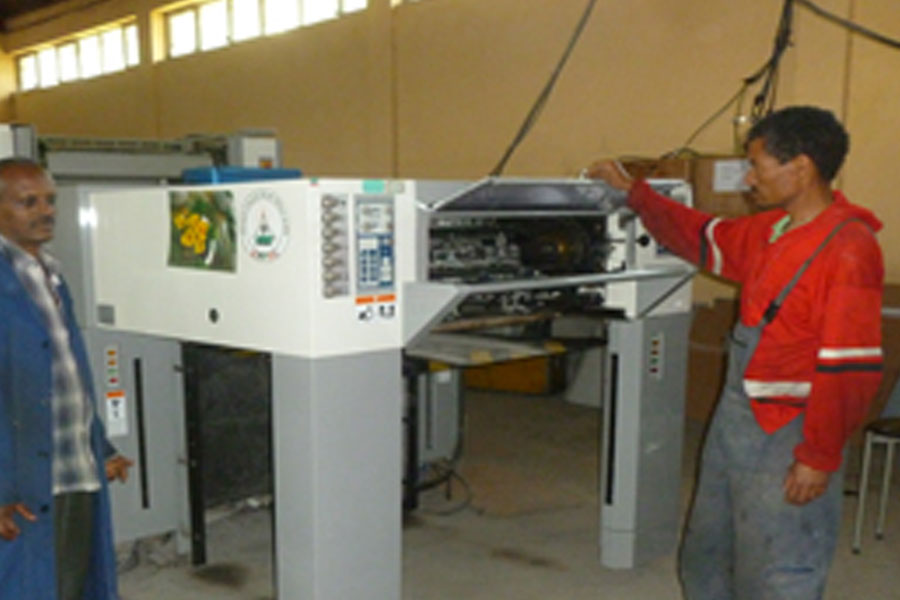
Fortune News | Jul 01,2023
Aug 1 , 2020
By HAGOS GEBREAMLAK ( FORTUNE STAFF WRITER )
The government has started preparing mandatory and voluntary standards for major exportable commodities in the hope of making them competitive in the global market.
The Ethiopian Standards Agency (ESA) has begun the process of developing 216 new national standards across four industries. Textiles; leather and leather products; honey; and fruit and vegetables are the commodities expected to meet the forthcoming standards.
The largest number of standards, 78, will be issued for leather products followed by honey, which will receive 53 new standards. Fruit and vegetable products will get 48 new standards, while the remaining will go to the textile sector.
Of the 216 standards, which are expected to be finalised in six months, 170 will be mandatory.
Before reaching a decision to prepare the standards, the Agency and the Ministry of Trade & Industry conducted an assessment of the qualities of the industries last year, according to Yilma Mengistu, standard development director at the Agency, which has so far drafted 10,800 voluntary and 253 mandatory national standards.
“The assessment found out that in spite of the huge potential, these sectors are inefficient and unable to catch up with foreign counterparts,” said Yilma.
Based on the assessment, the Agency learned that there need to be new national standards, according to Yilma.
The process of drafting the new standards is part of the World Bank's National Quality Infrastructure Development Project for Ethiopia that was launched in March 2017 with a budget of 50 million dollars. Expected to be completed by July 2022, the initiative was adopted to improve the delivery of quality assurance services to enterprises in the trade, manufacturing and agricultural commercialisation sectors.
The project is aimed at supporting the quality of infrastructure, as well as the effectiveness of the Ethiopian Standards Agency, the Ethiopian National Accreditation Office, the Ethiopian Conformity Assessment Enterprise and the National Metrology Institute of Ethiopia. The project has three components: strengthening the capacity of these institutions; enhancing private sector engagement; and supporting project management, monitoring and evaluation.
As the implementing agency for the project, the Ministry of Trade & Industry signed a framework agreement with the Ethiopian Standards Agency on July 24, 2020, to develop the standards.
The standards will be prepared in line with international standards, according to Eshete Assefa, state minister for Trade & Industry and director of the trade quality and regulatory sector.
In developing the standards, the Agency will adopt standardisation input from the World Trade Organisation (WTO) and the International Standardisation Organisation (ISO), according to Yilma.
To compete in the European Union market, the Ethiopian goods should at least fulfill European standards and comply with EU trade regulations, according to Yilma.
While bestowed with natural and agricultural resources, the country is still importing many agricultural goods. And the standards are aimed at substituting imports and boosting export revenues, according to the Agency.
In the 2018/19 fiscal year, the country spent 15 billion dollars on imports while earning only 2.6 billion dollars from exports, registering a 12.4 billion Br trade deficit.
The four sectors were prioritised, because the country is bestowed with these resources and can easily manipulate them into wealth if efficiently worked out, according to Eshete.
“These sectors can create a massive number of jobs,” he said.
Standardisation of the sectors is very indispensable to enhance the export trade of the country, according to Yonas Abesha, communications head of the Ethiopian Textile Industry Development Institute.
“Standardisation especially helps textile companies to penetrate the international market,” he remarked.
But drafting additional standards might instead complicate the sectors by adding more burdens, argued Getachew Biratu, an expert in trade and investment.
“Boosting the volume of export trade by drafting new standards isn't practical,” he said.
The main problems that encumber the export sector have nothing to do with the absence of standards but the absence of a local market, believes the expert.
“The factories don’t gain a large return from their products, because of the higher costs of production due to the absence of the domestic market,” Getachew said.
Domestic producers with little working capital, low-skilled labour and inefficient technologies cannot compete with foreign producers, according to the expert.
"Contraband trade is another factor that hurts the sector by competing for the local market," said Getachew. “Illicit trade activities should be effectively controlled."
The government should focus on solving the root causes by availing finance, realising skilled manpower, and expanding local market opportunities to domestic products, Getachew recommended.
“The government should protect domestic producers through fiscal and technical regulatory methods,” he concluded.
PUBLISHED ON
Aug 01,2020 [ VOL
21 , NO
1057]

Fortune News | Jul 01,2023

Radar | Sep 06,2020

Radar | Dec 05,2018

Radar | Dec 12,2020

Fortune News | May 23,2021

Fortune News | Aug 09,2025

Fortune News | Jan 01,2022

Fortune News | Feb 16,2019

Viewpoints | Sep 11,2020

Life Matters | Mar 12,2022

Dec 22 , 2024 . By TIZITA SHEWAFERAW
Charged with transforming colossal state-owned enterprises into modern and competitiv...

Aug 18 , 2024 . By AKSAH ITALO
Although predictable Yonas Zerihun's job in the ride-hailing service is not immune to...

Jul 28 , 2024 . By TIZITA SHEWAFERAW
Unhabitual, perhaps too many, Samuel Gebreyohannes, 38, used to occasionally enjoy a couple of beers at breakfast. However, he recently swit...

Jul 13 , 2024 . By AKSAH ITALO
Investors who rely on tractors, trucks, and field vehicles for commuting, transporting commodities, and f...

Oct 25 , 2025
The regulatory machinery is on overdrive. In only two years, no fewer than 35 new pro...

Oct 18 , 2025
The political establishment, notably the ruling party and its top brass, has become p...

Oct 11 , 2025
Ladislas Farago, a roving Associated Press (AP) correspondent, arrived in Ethiopia in...

Oct 4 , 2025
Eyob Tekalegn (PhD) had been in the Governor's chair for only weeks when, on Septembe...